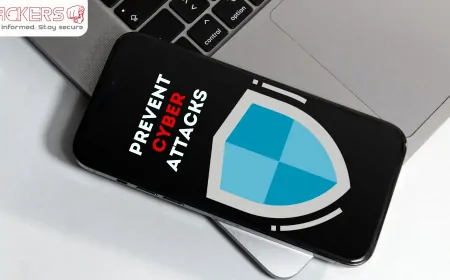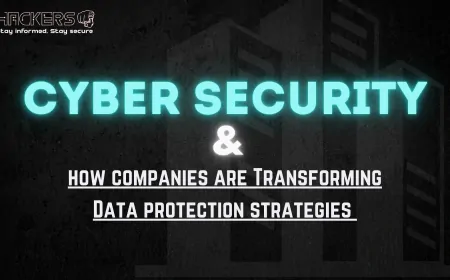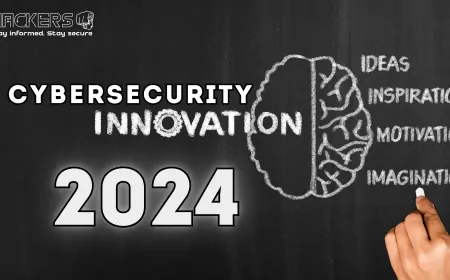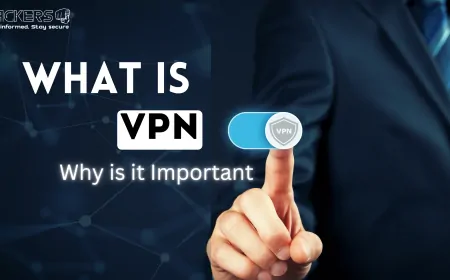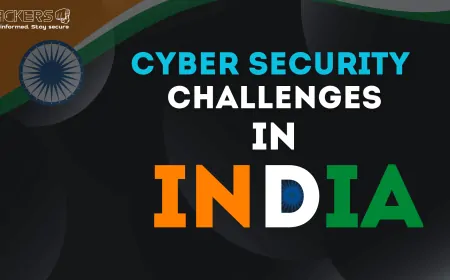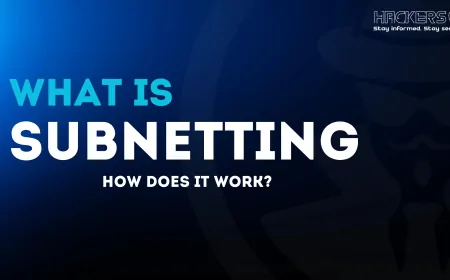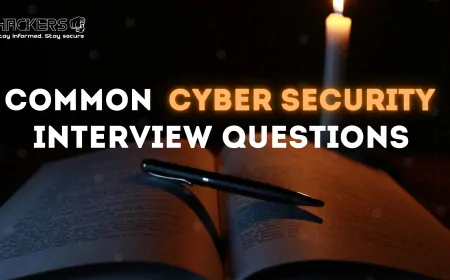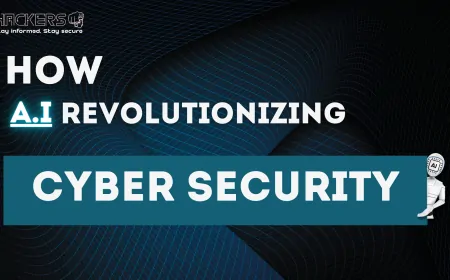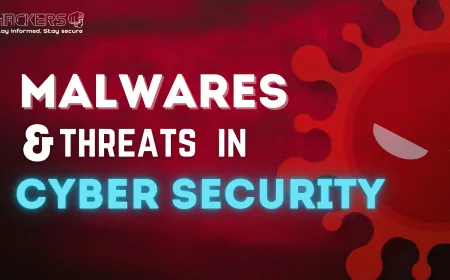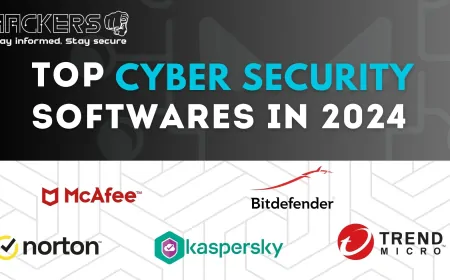Cybersecurity Career Roadmap After B.Cs | Eligibility, Course, Fees, and Syllabus
Explore the career roadmap in cybersecurity after completing a B.Cs degree. Learn about eligibility, top courses, fees, and syllabus for 2024 to kickstart your cybersecurity career.

Introduction
As technology continues to evolve, the demand for skilled cybersecurity professionals is growing rapidly. For graduates with a Bachelor of Computer Science (B.Cs), pursuing a career in cybersecurity offers exciting opportunities. This guide provides a detailed roadmap for building a career in cybersecurity after completing a B.Cs, including eligibility requirements, course options, fees, and syllabus details.
Why Pursue a Cybersecurity Career After B.Cs?
A B.Cs degree provides a strong foundation in computer science and programming, which is highly beneficial for a career in cybersecurity. The field offers high earning potential, job security, and the opportunity to work on cutting-edge technologies to protect organizations from cyber threats. Transitioning from a B.Cs to a cybersecurity role can enhance your career prospects and open doors to various specialized positions.
Eligibility Criteria
For B.Cs graduates, eligibility for advanced cybersecurity courses typically includes:
- Educational Qualification: Completion of a Bachelor’s degree in Computer Science or a related field.
- Minimum Marks: Generally, a minimum of 50-60% aggregate marks in the B.Cs degree.
- Relevant Experience: Some advanced courses or certifications may require prior experience or knowledge in IT or cybersecurity.
- Entrance Exams: Certain programs might require entrance exams or interviews.
Choosing the Right Cybersecurity Course
Selecting the right cybersecurity course can significantly impact your career trajectory in the field of cybersecurity. With a variety of options available, it's essential to make an informed decision based on your career goals, educational background, and personal interests. Here’s a guide to help you choose the right cybersecurity course for your needs.
1. Assess Your Career Goals
Before choosing a course, consider your long-term career goals in cybersecurity. Are you aiming for a role in ethical hacking, network security, or cyber forensics? Understanding your career aspirations will help you select a course that aligns with your professional objectives.
2. Review Your Educational Background
Your educational background can influence the type of course you should pursue. For instance:
- For Beginners: If you're new to cybersecurity, look for foundational courses or certifications like CompTIA Security+ or Certified Ethical Hacker (CEH) that cover basic principles.
- For Intermediate Learners: If you have some background in IT or cybersecurity, consider advanced courses or certifications such as CISSP (Certified Information Systems Security Professional) or CISM (Certified Information Security Manager).
- For Advanced Learners: Those with a strong foundation can opt for specialized programs like a Master’s degree in Cybersecurity or advanced certifications in niche areas of cybersecurity.
3. Consider Course Format and Flexibility
Courses come in various formats, including online, in-person, and hybrid. Choose the format that best suits your schedule and learning preferences:
- Online Courses: Offer flexibility and can be completed from anywhere. Ideal for working professionals or those with busy schedules.
- In-Person Courses: Provide hands-on learning and networking opportunities but may require a significant time commitment.
- Hybrid Courses: Combine online learning with in-person sessions, offering a balance of flexibility and direct interaction.
4. Evaluate Course Content and Syllabus
Examine the course syllabus to ensure it covers topics relevant to your interests and career goals. Look for courses that include:
- Fundamental Concepts: Network security, ethical hacking, cryptography, and digital forensics.
- Advanced Topics: Threat intelligence, security architecture, incident response, and risk management.
- Practical Experience: Hands-on labs, case studies, and real-world scenarios that provide practical skills.
5. Check the Accreditation and Reputation
Ensure the course or institution is accredited and recognized in the industry. Accredited programs are often more respected by employers and provide a higher level of education. Research reviews, ratings, and the institution’s reputation to ensure quality.
6. Analyze the Costs and Financial Aid
Evaluate the costs of the courses and determine if they fit within your budget. Consider the following:
- Tuition Fees: Compare the costs of different programs and check if they include additional expenses like books or materials.
- Financial Aid: Look for scholarships, grants, or payment plans that can help reduce the financial burden.
7. Consider Job Placement Support
Many institutions offer career services and job placement assistance. Look for courses that provide support such as:
- Internships: Opportunities to gain real-world experience.
- Career Counseling: Guidance on job search strategies and interview preparation.
- Networking Opportunities: Access to industry events and professional networks.
8. Research Industry Demand and Trends
Stay informed about the latest trends and demands in the cybersecurity industry. Choose courses that address current and emerging threats and technologies to ensure you acquire relevant and up-to-date skills.
Why Choose WebAsha Technologies?
When selecting a provider for your tech and educational needs, choosing the right partner is crucial. WebAsha Technologies stands out for its exceptional offerings in cybersecurity training and tech solutions. Here’s why WebAsha Technologies should be your go-to choice:
1. Comprehensive and Updated Curriculum
WebAsha Technologies offers a comprehensive range of courses that are regularly updated to reflect the latest industry trends and technologies. Whether you’re interested in cybersecurity, cloud computing, or software development, their curriculum is designed to equip you with current and relevant skills.
- Cutting-Edge Content: Stay ahead with courses that cover the latest advancements and best practices in the industry.
- Hands-On Training: Practical experience through labs and real-world scenarios ensures you apply what you learn.
2. Experienced and Certified Trainers
Our team of trainers comprises industry experts with extensive experience and certifications. They bring real-world knowledge and practical insights to the training sessions, providing you with a rich learning experience.
- Expert Guidance: Benefit from trainers who have hands-on experience in their respective fields.
- Certification Preparation: Get ready for industry-recognized certifications with expert guidance.
3. Flexible Learning Options
Understanding that every learner has unique needs, WebAsha Technologies offers flexible learning formats to suit different schedules and preferences:
- Online Courses: Learn at your own pace with access to online resources and virtual classrooms.
- In-Person Classes: Engage in interactive, face-to-face learning experiences.
- Hybrid Programs: Combine the flexibility of online learning with the benefits of in-person sessions.
4. Industry-Relevant Certifications
Our courses prepare you for essential industry certifications that enhance your credentials and career prospects. From CompTIA Security+ to CISSP and CEH, our training ensures you’re well-prepared to achieve your professional goals.
- Accredited Courses: Courses designed to meet the requirements of recognized certification bodies.
- Career Advancement: Gain certifications that can open doors to advanced job opportunities and higher earning potential.
5. State-of-the-Art Facilities
For in-person training, WebAsha Technologies provides state-of-the-art facilities equipped with the latest technology and resources. Our modern training environments are designed to enhance your learning experience and ensure you have access to the tools you need.
- Modern Labs: Hands-on experience with up-to-date equipment and technology.
- Comfortable Environment: A conducive learning environment that supports your educational journey.
6. Strong Industry Connections
WebAsha Technologies maintains strong connections with leading tech companies and industry professionals. These relationships provide students with valuable networking opportunities and insights into industry trends.
- Networking Opportunities: Connect with industry leaders and peers through events and workshops.
- Industry Insights: Gain access to insider knowledge and emerging trends from professionals in the field.
7. Exceptional Support and Resources
We are committed to your success and offer exceptional support throughout your learning journey. From initial inquiries to post-training support, our team is here to assist you.
- Dedicated Support: Access to support for course-related queries and technical assistance.
- Learning Resources: Comprehensive materials and resources to supplement your training and enhance your knowledge.
8. Proven Track Record of Success
WebAsha Technologies has a proven track record of helping individuals and organizations achieve their training and technology goals. Our satisfied clients and successful graduates are a testament to the quality and effectiveness of our programs.
- Success Stories: Read testimonials from our graduates who have advanced their careers with our training.
- Client Satisfaction: High levels of satisfaction from businesses and individuals who have benefited from our services.
Syllabus Overview for Advanced Cybersecurity Courses
For advanced cybersecurity courses, the syllabus typically includes:
- Advanced Network Security: In-depth study of network security protocols, VPNs, firewalls, and intrusion detection systems.
- Ethical Hacking and Penetration Testing: Techniques and tools for assessing and improving system security.
- Cyber Risk Management: Identifying, assessing, and mitigating cyber risks.
- Digital Forensics: Methods for investigating and analyzing cybercrimes.
- Cryptography: Advanced encryption methods and secure communication practices.
- Security Policies and Governance: Developing and enforcing security policies and compliance standards.
Fees
| Course Type | Duration | Fees (Approx.) | Details |
|---|---|---|---|
| Certificate Courses | 3 to 6 months | ₹40,000 to ₹2,40,000 | Short-term courses offered by online platforms and institutes, ideal for gaining specific skills in areas like ethical hacking, network security, or cybersecurity basics. |
| Diploma Courses | 6 months to 1 year | ₹1,60,000 to ₹5,60,000 | More in-depth understanding, provided by technical institutes and some universities; suitable for practical skills and certifications. |
| Postgraduate Diplomas/Advanced Certifications | 1 year | ₹4,00,000 to ₹12,00,000 | Advanced knowledge in specialized areas such as digital forensics, cryptography, and security management; offered by reputed institutions. |
| Master’s Degree in Cybersecurity | 1 to 2 years | ₹8,00,000 to ₹24,00,000 | Comprehensive education with options to specialize further, including theoretical and practical training, often with internships or research opportunities. |
| Online Courses and MOOCs | Variable (1 to 6 months) | Free to ₹1,20,000 | Flexible learning options at a lower cost, offered by various online platforms; some courses are free with optional paid certificates. |
| Additional Costs | N/A | Varies | Exam fees for certifications (e.g., CompTIA Security+, CEH, CISSP) range from ₹24,000 to ₹56,000. Additional costs may include textbooks, lab access, and other resources. |
Career Opportunities After Cybersecurity Courses
With a background in computer science and additional cybersecurity qualifications, you can explore various career paths, including:
- Security Analyst
- Penetration Tester (Ethical Hacker)
- Security Consultant
- Cybersecurity Architect
- Incident Responder
- Cyber Forensics Expert
- Network Security Engineer
Conclusion
Transitioning to a cybersecurity career after completing a B.Cs degree opens up numerous opportunities in a high-demand field. By pursuing advanced courses or professional certifications, you can enhance your skills, gain specialized knowledge, and position yourself for a successful career in protecting digital assets. With the right education and training, you can contribute to safeguarding organizations from ever-evolving cyber threats.
FAQs
1. What is the best career path in cybersecurity after completing a B.Cs?
The best career paths include roles such as Security Analyst, Penetration Tester, Security Consultant, Cybersecurity Architect, Incident Responder, and Cyber Forensics Expert. Advanced studies and certifications can further enhance career opportunities.
2. What are the eligibility requirements for cybersecurity courses after a B.Cs?
Eligibility generally includes having a B.Cs degree with a minimum of 50-60% aggregate marks. Some courses may also require relevant experience or knowledge in IT or cybersecurity.
3. Are there any entrance exams for advanced cybersecurity courses?
Certain postgraduate programs or specialized certifications may require entrance exams or interviews. However, many courses offer direct admission based on academic performance and relevant experience.
4. What are the best cybersecurity courses available after a B.Cs?
Top courses include M.Sc. in Cybersecurity, M.Tech in Cybersecurity, Postgraduate Diploma in Cybersecurity, and various professional certifications such as CISSP, CEH, and CompTIA Security+.
5. What is the duration and fee structure for cybersecurity courses after a B.Cs?
- M.Sc. in Cybersecurity: 2 years, INR 1,00,000 - 3,00,000 per year
- M.Tech in Cybersecurity: 2 years, INR 1,50,000 - 3,50,000 per year
- Postgraduate Diploma in Cybersecurity: 1 year, INR 50,000 - 2,00,000
- Professional Certifications: 6 months - 1 year, INR 20,000 - 1,00,000
6. What subjects are typically covered in cybersecurity courses after a B.Cs?
Common subjects include Advanced Network Security, Ethical Hacking and Penetration Testing, Cyber Risk Management, Digital Forensics, Cryptography, and Security Policies and Governance.
7. Are online cybersecurity courses available for B.Cs graduates?
Yes, many institutions and online platforms offer cybersecurity courses that can be completed remotely, providing flexibility for students who prefer online learning.
8. How can a B.Cs graduate enhance their career prospects in cybersecurity?
By pursuing advanced degrees or certifications, gaining hands-on experience, and staying updated with the latest cybersecurity trends and technologies, B.Cs graduates can enhance their career prospects.
9. What skills are essential for a successful career in cybersecurity?
Essential skills include problem-solving, analytical thinking, knowledge of networking and operating systems, familiarity with security protocols, and the ability to stay updated with the latest cyber threats and technologies.
10. What are the career growth prospects in cybersecurity for someone with a B.Cs degree?
Cybersecurity professionals with a B.Cs degree and additional qualifications can expect strong career growth, with opportunities to advance into senior roles such as Security Consultant, Cybersecurity Architect, and Chief Information Security Officer (CISO).
What's Your Reaction?









